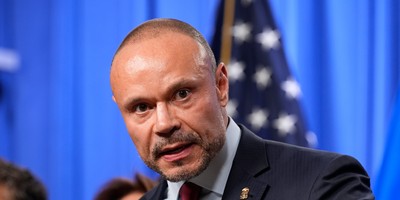No Matter How the Brexit Vote Turns Out, EU Membership Will Remain Hotly Debated
On Thursday, Britons will vote to stay or leave the European Union. While the impact of a ‘leave’ vote prevailing would be significant but unquantifiable, a ‘stay’ vote won’t put the Eurosceptic genie back in the bottle. The pros and cons of staying in the European Union have been debated extensively within Great Britain. The arguments for staying or leaving have also been analyzed across other European member states. Many of the issues concerning the British ‘leave’ campaigners (e.g. Brussels waste, anti-democratic nature of EU decisions, excessive regulation and immigration policy) are also concerns of the citizens of other European Union member states.
The very existence of the EU has been called in to question by the British referendum on Europe.
Is it Worth Staying in The European Union?
Dutch Exit?
The Brexit vote has stirred similar ‘leave’ sentiments in other European member states. At a minimum, the attention around Brexit has reintroduced the question of whether it makes sense to stay in the European Union. According to De Telegraaf, a leading newspaper in the Netherlands, 88% of people in that country want a British style in/out referendum on the question of European Union membership. The poll doesn’t mean 88% of the people of the Netherlands want out, but that nearly nine out of ten people want to examine and vote on the issue of EU membership.
Many in the Netherlands believe they are subsidizing poorer EU member states to their own detriment. This view is widespread among the citizens of the richer, northern European nations. They believe that their ‘foreign aid’ bill is too high and they have little say in how their tax dollars are spent.
Denmark – To Stay or Not To Stay?
Danes also have expressed a high level of Eurosceptism. In December last year, Denmark voted down a referendum that would have provided for ‘Europol’ cross-border policing. Denmark has a long history of Eurosceptism. In 1992 Danes rejected the original Maastricht treaty. The former Prime of Denmark Minister Helle Thorning-Schmidt noted recently that most Danes don’t necessarily like the EU but that most want to remain. The current Prime Minister of Denmark, Lars Loekke Rasmussen, seemingly nervous that a Brexit might further stir Eurosceptism in his country, said “Denmark will always belong inside the European Union no matter what the outcome of the British referendum.”
Recommended
A stay vote in the British referendum this week may tame some Eurosceptism, while a leave vote may flame it further.
Is it Worth Joining the European Union?
Switzerland says ‘no’
As some European member states citizens have an eye on the EU door, Switzerland has stepped away from the entrance. Last week the Swiss Parliament voted to withdraw its EU application. The vote was 27 to 13. The withdrawal request will be presented to the EU following the Brexit vote. Switzerland’s withdrawal of its EU application, follows Iceland’s withdrawal of their EU application in March 2015.
Citizens across the European member states are asking themselves: Are we better served by a local responsive government than one centered in Brussels? Can trade happen outside the European union? Are we better off in or out? Do we want to continue to be a part of the EU? For those not in the EU but considering it, the questions is “Do we really want to be part of the EU, especially when Great Britain may not be in it?
Shifting Political Sands and Gold
As the Brexit movement illustrates, ideas spread quickly. Political and economic fortunes are often made or lost in relatively short time spans. Currencies issued by governments are only as good and durable as the confidence that the people of the country and its trading partners have in the political union and the ability of that union to manage its finances. When confidence of the issuer is called into question, the potential for erosion of the value of an issuer’s currency increases.
Some view Gold is an insurance policy against the potential loss of confidence and the shifting values of national currencies. Voters, politicians and central bankers are fickle – gold is not. Anything that can change, will. Gold often is viewed as a safe haven when political uncertainty arises as it never changes its mind.
This article by BGASC is not, and should not be regarded as, investment advice or as a recommendation regarding any particular course of action.

























Join the conversation as a VIP Member